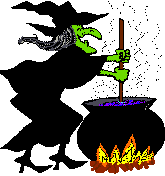Panic
Anxiety Disorder is pure "classic" Junk science.
Psychiatry is Junk
science
No scientific data that Psychiatry works!
|
|
||
|
|
Snapshot: |
|
|
|
||
A. Snapshot summary:
1. Panic Anxiety Disorder, (PAD) a behaviour choice not a disease.
2. People become anxious because they lack self-control.
3. People can feel panic for many reasons:
a. Seeing a spider or snake.
b. Being in public.
c. Suddenly remembering they are 3 payments behind on their mortgage.
4. Treating Panic Anxiety Disorder with drugs is like smashing a computer because of a software virus.
5. While people may condition and train themselves to experience sudden panic fits for an infinite number of specific things, it is not a disease.
6. "The same principles apply to all psychiatric disorders, from "panic disorder" to "schizophrenia." At the root of each lies a personal story about heroism or failed heroism in dealing with the challenge of life, about spiritual capacity and incapacity, about ethical confusion and contradiction, and ultimately about the struggle to create a life of satisfaction and meaning. The same principles also apply to lesser intensities of emotional overwhelm. More subtle degrees of anxiety or depression, for example, are likely rooted in hidden trauma and misunderstood or conflicted principles of living." (The Heart of Being Helpful, Peter Breggin, 1997 AD. p 68)
7. Jesus commands us to be anxious for nothing. Anxiety is a sinful behaviour choice which is "cured" through self-control not drugs.
B. What biopsychiatrists, drug companies and governments say:
Notice they admit they have no idea what causes it.
1. "What causes panic disorder? No one really knows what causes panic disorder, but several ideas are being researched. Panic disorder seems to run in families, which suggests that it has at least some genetic basis. Some theories suggest that panic disorder is part of a more generalized anxiety in the people who have panic attacks or that severe separation anxiety can develop into panic disorder or phobias, most often agoraphobia. Biological theories point to possible physical defects in a person's autonomic (or automatic) nervous system. General hypersensitivity in the nervous system, increased arousal, or a sudden chemical imbalance can trigger panic attacks. Caffeine, alcohol, and several other agents can also trigger these symptoms. Is panic disorder treatable? Recovery from panic disorder can be achieved either by taking medication or by cognitive behavioral therapy that is specific for panic disorder. Studies suggest that medication and cognitive behavioral therapy are about equally effective and the decision about which to take depends largely on the preference of the person with the panic disorder. Medication probably works a bit faster, but has more adverse side effects than cognitive behavioral therapy. Also, when successful treatment is finished, people who have had cognitive behavioral therapy tend to remain well longer than people who have taken medication. There is some evidence that the combination of cognitive behavioral therapy and medication may offer some benefits over either one alone." (Panic Disorder, NAMI, National Alliance on Mental Illness, Jack Gorman, MD May 2003)
2. "What Causes Panic Disorder? Heredity, other biological factors, stressful life events, and thinking in a way that exaggerates relatively normal bodily reactions are all believed to play a role in the onset of panic disorder. The exact cause or causes of panic disorder are unknown and are the subject of intense scientific investigation. ... What Treatments Are Available for Panic Disorder? Treatment for panic disorder includes medications and a type of psychotherapy known as cognitive-behavioral therapy, which teaches people how to view panic attacks differently and demonstrates ways to reduce anxiety." (Panic Disorder, Freedom From Fear, Staten Island, NY, National non-profit Mental Illness Advocacy Organization)
3. "By learning more about how the brain creates fear and anxiety, scientists may be able to devise better treatments for anxiety disorders. For example, if specific neurotransmitters are found to play an important role in fear, drugs may be developed that will block them and decrease fear responses; if enough is learned about how the brain generates new cells throughout the lifecycle, it may be possible to stimulate the growth of new neurons in the hippocampus in people with PTSD." (Anxiety Disorders, National Institute of Mental Health, NIMH, 2006)
4. "Treatment of Anxiety Disorders: In general, anxiety disorders are treated with medication, specific types of psychotherapy, or both." (Anxiety Disorders, National Institute of Mental Health, NIMH, 2006)
5. "Scientists currently think that, like heart disease and type 1 diabetes, mental illnesses are complex and probably result from a combination of genetic, environmental, psychological, and developmental factors. ... Several parts of the brain are key actors in the production of fear and anxiety." (Anxiety Disorders, National Institute of Mental Health, NIMH, 2006)
C. Cases of depression and anxiety:
|
Depression in the DSM-5 |
|
|
Panic Disorder (PD) |
|
|
Postpartum Depression (PPD) |
|
|
|
|
|
Social Phobia (SP) |
|
Conclusion:
1. Anxiety is an emotion that results from a choice whose origin is the human spirit.
2. Anxiety is a behaviour choice not a disease.
3. It is important to ask, "What benefit is this individual deriving from engaging in this behaviour of anxiety." Often anxiety is a means to an end for personal gain.
4. There is no scientific evidence that any anxiety disorder is caused by a chemical imbalance in the brain.
5. Jesus commanded us not to be anxious. Work on your self-control instead of drugs to free yourself of all anxiety.
By Steve Rudd: Contact the author for comments, input or corrections.
Send us your story about your experience with modern Psychiatry


